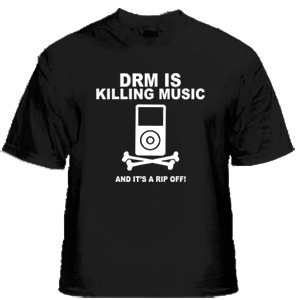DRM and open source are the great divide


DRM, Digital Rights Management, is generally found in the form of an encryption wrapper giving control of the content to a rights holder. DRM is designed to keep content from being viewed or forwarded "without the express written permission" of its creator.
DRM is at the heart of the BBC iPlayer story. It is at the heart of Apple's iTunes monopoly. It is the centerpiece of the Copyright Wars. And it is the issue which threatens to split the GPL into two camps, the GPLv2 camp of Linus Torvalds and the GPLv3 camp of Richard Stallman.
Do DRMs work? Against casual users, yes. Against those anxious to crack them, no.
Are DRMs good business? Some in the music industry are beginning to question this, but most in the video industry don't. Although the success of YouTube should have put the lie to that one.
Are DRMs moral? Aye, there's the rub. Stallman objects to them on principle. But the content industries, those with DRM technology, and nearly every government says they're the law.
The divide between FOSS advocates and open source comes down to this. If software can build valid business models with free distribution, why can't everything else?
And that's where I personally come down on the question. This is a political question it will take a businessman to answer.
Rather than asking whether DRM is moral, legal, good or bad, what if we could find a DRM-free business model which spun money for content producers at least as well as open source does for software?